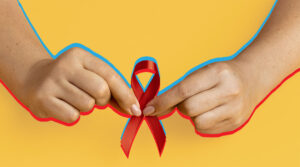If you have read or heard anything about how HIV infection works, you will know that its target within the body are certain cells of the immune system called CD4 T-lymphocytes.
By infecting these cells and using them as a kind of ‘incubator’ to replicate, the virus destroys them and thus causes the body’s defense system to weaken, leaving it devastated if the necessary treatment is not provided.
However, over more than four decades of the HIV pandemic, researchers have discovered that this virus also causes chronic inflammation, often affecting certain organs.
Sometimes it is the virus itself that causes organ damage, but these effects can also be caused by the use of certain antiretroviral drugs.
If you have received a diagnosis of HIV, here we tell you which are the organs that are most affected by the virus and/or its treatment, so that you pay special attention to them and you can communicate your concerns to your medical team.
Take care
The most common disorders that HIV produces in these organs are infections, which could cause bleeding in the retina and its detachment, which could lead to blindness.
According to the medical information site WebMD.com, about 70% of people with AIDS (that is, those whose HIV infection has not been controlled and has reached its most severe stage) have eye problems.
It is important to seek an ophthalmology consultation if you notice:
- Blurred vision, double vision or strange colors
- Stains
- Constant redness or tearing
- Sensitivity to light
- Eye pain
Heart
The heart health of a person with HIV is affected because the infection subjects the body to a process of constant inflammation, and this type of inflammation is related to heart problems.
In addition, certain antiretroviral drugs increase the possibility of developing heart disease, because they promote diabetes and this problem, in turn, leads to heart problems.
To minimize the risks, your medical team may give you medication to control your cholesterol or glucose. It is also important that you do not smoke, as this is a known risk factor for the cardiovascular system.
It is best to maintain a healthy diet and exercise, at least 20-30 minute brisk walks, most days of the week.
Kidneys and liver
Diabetes and hypertension (high blood pressure) are also a cause of kidney disease. On the other hand, if you already have kidney problems, there are certain antiretroviral drugs that you should not take; your doctor knows what they are.
A healthy diet and exercise also support the health of your kidneys and liver, so there’s more than one reason to do so.
On the other hand, it is quite common for people with HIV to also have an infection with a hepatitis virus, generally viruses B and C, so the liver is another organ that must be monitored.
To help your liver, do not drink alcohol or use drugs, and ask your doctor to prescribe antiretroviral that have the least possible effect on this organ.
Bones
People living with HIV tend to lose bone mass faster than those who do not have the virus.
Bones are structures that are being destroyed and rebuilt all the time, in a natural process of the body. Bone loss occurs when the body destroys more bone than it replaces.
Both the virus itself and the drugs that control it can cause bone loss. It is common for people with HIV to have a deficiency of vitamin D, an essential mineral for fixing calcium in the bones.
Actions you can take to prevent these complications include taking calcium and vitamin D supplements, avoiding smoking and drinking alcohol, and exercising such as walking, yoga, or resistance exercises.
Now you know, the more you know about how HIV works, the better you can take care of your health with the help of your medical team. Remember that if you have an HIV diagnosis and you have not started your treatment or if you suspended it and want to resume it, at AHF Latin America and the Caribbean we can help you. Locate our closest offices in your country or write to us by Whatsapp.






